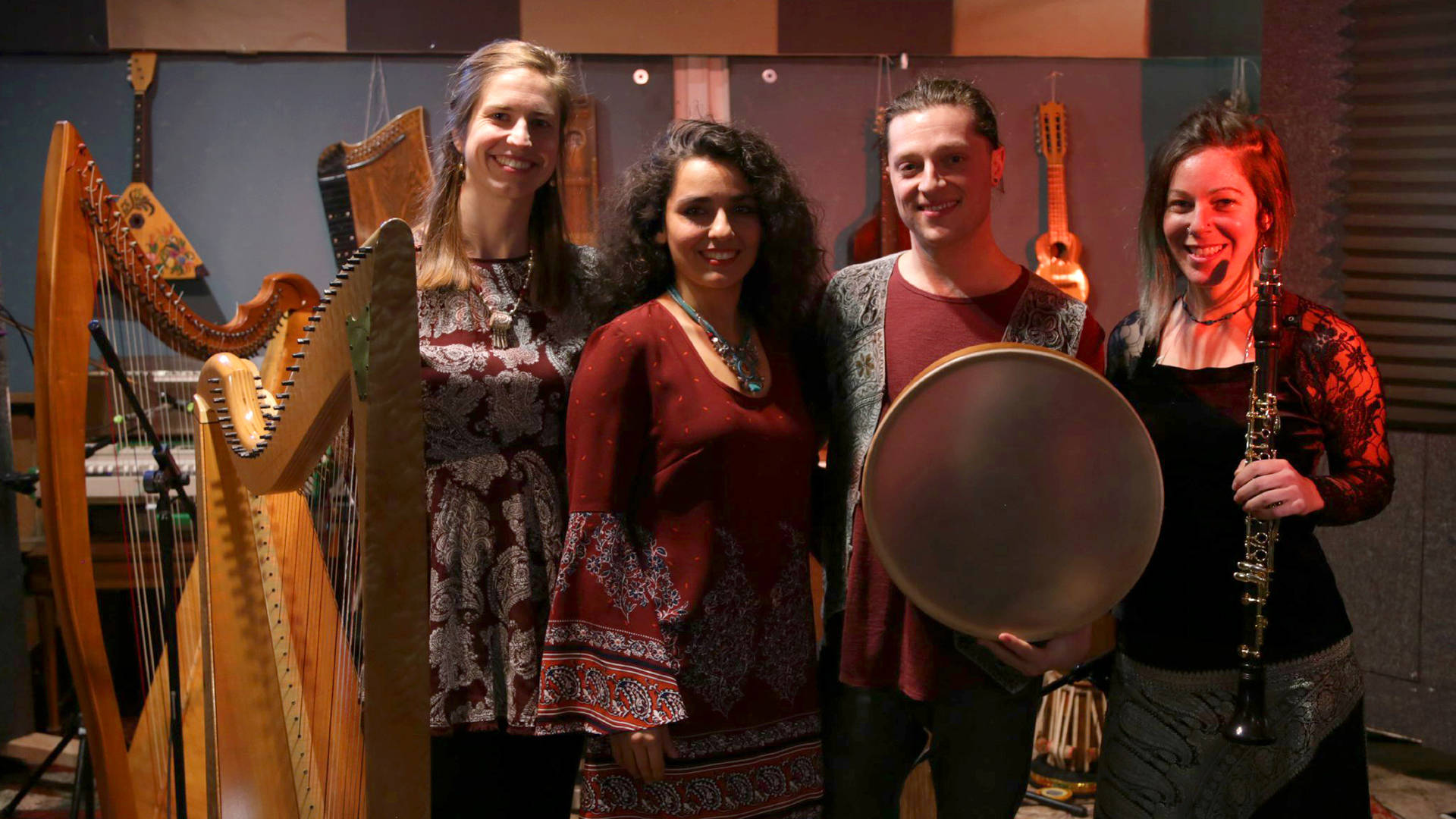As federal judges challenged Trump’s travel ban in court, its fate remained uncertain. On June 26, Zarif was devastated to learn that the Supreme Court ruled in favor of upholding the executive order.
“We were all hopeful that it’s going to go another way, and we were not expecting the decision,” she says. “I applied for my parents’ green card. Their green card is ready here to pick up, but they cannot enter the country. Even with an immigrant visa. And my brother is getting rejected for a student visa. Husbands, wives—no one can come to the U.S.”
The news of the Supreme Court ruling came just days before Zarif’s concert, “Music of the Banned,” taking place June 30 at the Yerba Buena Gardens Festival in San Francisco. The concert presents music from countries affected by the travel ban (which now includes five Muslim-majority countries, in addition to North Korea and Venezuela), and coincides with a nationwide day of action against Trump’s immigration policies and family separation at the U.S.-Mexico border. (Saturday morning, protesters will march from Dolores Park to Civic Center, a stone’s throw from Yerba Buena Gardens, for a rally expected to draw thousands.)
It’s likely, Zarif hopes, that the rally will boost turnout for “Music of the Banned.” The goal of the free outdoor concert is to foster unity among the many immigrant groups affected, she says, as well as inspire empathy in native-born Americans with stereotypical views of Muslims and people from the affected countries as terrorists. (Although the White House cites national security as the reason for the ban, only a single terrorist who committed a deadly attack has slipped through the American immigration system since 9/11, according to a study from the Cato Institute; she was not from one of the countries listed in the ban.)
“If an American doesn’t know what’s going on and they think all the people from these banned countries are not good for our country, that’s what matters, the impact it’s putting on ordinary people’s lives,” says Zarif. “If we can present the music of these countries that are banned—these countries have rich, beautiful music—then people can see the actual faces of the people being impacted by the travel ban.”
“Music of the Banned” features the Dina Zarif Ensemble, a quintet that fuses Western classical and traditional Persian music. Guitarist Carlos Caminos leads a trio called Sounds of Venezuela; the Ayjal Quartet combines Iranian Kurdish and Arabic Syrian music; and the Salma El Assal and Sudan Ensemble performs contemporary and classical Sudanese music.
Zarif threw the first “Music of the Banned” concert last year at the Red Poppy Art House, a Mission district nonprofit where she serves as the program director. As anti-immigrant sentiment in the United States intensifies, she plans to program more “Music of the Banned” performances and workshops throughout the coming year.
“I think arts and music will bring power,” she says. “With our voices being heard, it’s a very direct way to impact people and touch people’s hearts.”

“Music of the Banned” is free, taking place on Saturday, June 30, at the Yerba Buena Gardens Festival. Details here.



